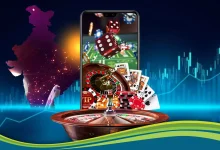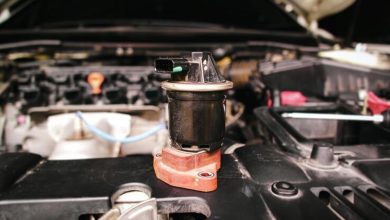How IoT is Transforming Everyday Life

The Internet of Things, or IoT, offers unparalleled connectedness and ease and drastically changes how we live our daily lives. IoT is revolutionizing how we interact with the world around us, from smart home devices that automate mundane tasks to wearable technology that monitors our health in real-time.
This technological evolution is not just confined to personal use; it is also reimagining industries such as healthcare, agriculture, and transportation, making operations more efficient and responsive. As IoT continues to evolve, its potential to enhance our quality of life and drive innovation seems boundless.
Online Entertainment
The Internet of Things (IoT) has revolutionized the landscape of online entertainment, providing enhanced user experiences through interconnected devices. IoT makes real-time data interchange possible, enabling more responsive and customized content delivery.
For instance, IoT technology can track user preferences and behaviors in the online casino industry to offer tailored gaming experiences and recommendations. This heightened level of personalization not only retains user interest but also increases engagement rates.
Moreover, IoT can enhance security measures by monitoring and detecting suspicious activities, ensuring a safe gaming environment. As a result, players can confidently Join Online Jackpot Action, knowing that the integration of IoT is making their experience more enjoyable and secure.
Smart Homes
The Internet of Things (IoT) transforms homes into intelligent living spaces that are responsive and adaptive by integrating sensors, actuators, connectivity, data processing, user interfaces, and central servers. These smart homes can adjust to the inhabitants’ needs and environmental changes, enhancing convenience and security.
Smart thermostats exemplify this transformation by learning user preferences and adapting to external weather conditions, ensuring optimal comfort and energy efficiency.
Similarly, smart lighting systems adjust the brightness based on natural light or user activities, promoting energy conservation and adding aesthetic appeal. These systems can be controlled by simple voice commands or smartphone taps.
Moreover, IoT has unprecedentedly elevated home security with smart locks, surveillance cameras, and motion detectors. These devices allow homeowners to monitor their properties remotely, receive instant alerts about suspicious activities, and control access from anywhere globally.
These advancements include sensors and actuators, which automate various tasks, from climate control and security to routine chores like watering plants.
Smart companies contribute to these advancements with their range of IoT components, such as precision sensors, efficient power solutions, and connectivity enhancements, further pushing the boundaries of smart home innovations.
Healthcare
The Internet of Things (IoT) is transforming the healthcare industry by enabling the seamless connection of various devices and facilitating the exchange of crucial data.
Wearable technology, such as fitness trackers and smartwatches, measures vital signs like blood pressure, heart rate, and oxygen levels in real time and sends the data to healthcare specialists instantly.
This allows immediate intervention when necessary, proving especially beneficial for patients with chronic conditions. Moreover, the continuous monitoring enabled by IoT helps prevent complications by ensuring patients receive timely care.
IoT also significantly improves patient outcomes and operational efficiency within healthcare facilities.
Data analytics facilitated by IoT devices allow healthcare providers to identify patterns, predict potential health issues, and personalize treatment plans, thus enhancing patient compliance and overall health. For example, connected insulin pumps can adjust insulin delivery based on real-time glucose levels for diabetes management.
Additionally, IoT promotes remote care and telemedicine, reducing the need for frequent hospital visits and lowering healthcare costs.
Though it brings numerous benefits, implementing IoT in healthcare must tackle data security and privacy challenges. Secure data storage and communication are vital to maintaining patient trust and protecting sensitive information.
Transportation
The Internet of Things (IoT) revolutionizes transportation by enhancing efficiency, safety, and connectivity. IoT’s integration into city systems, such as traffic lights and public transport, renders these networks more intelligent and manageable.
Cellular network advancements surpass traditional wired connections, offering robust and flexible solutions. IoT applications in transportation include improving engine performance, fuel efficiency, route planning, and parking solutions.
The broad impact of IoT extends to individual commuters, the automotive industry, city infrastructure, and organizations, optimizing Smart Traffic.
Management Systems (STMS), public transit, logistics, electric vehicle charging stations, and railway operations. IoT is paving the way for smarter, safer, and more efficient journeys by streamlining transportation management.
Additionally, IoT has significantly enhanced the capabilities of connected cars, leading to dramatic improvements in daily transportation.
These smart vehicles are equipped with sensors and software to communicate with each other and external systems. This connectivity facilitates real-time traffic management, predictive maintenance, and enhanced safety features, to name a few benefits.
Moreover, IoT-enabled vehicles can also receive instant information about accidents or road closures. This allows drivers to reroute their journeys accordingly, saving time and reducing the stress of unexpected delays.
Conclusion
The influence of IoT on everyday life is profound and far-reaching. IoT is making settings smarter, more responsive, and more individualized by connecting systems and gadgets in novel ways. As technology continues to evolve, the possibilities for IoT applications will expand, further transforming our daily experiences and interactions. Embracing IoT can lead to a more connected, efficient, and convenient world.






